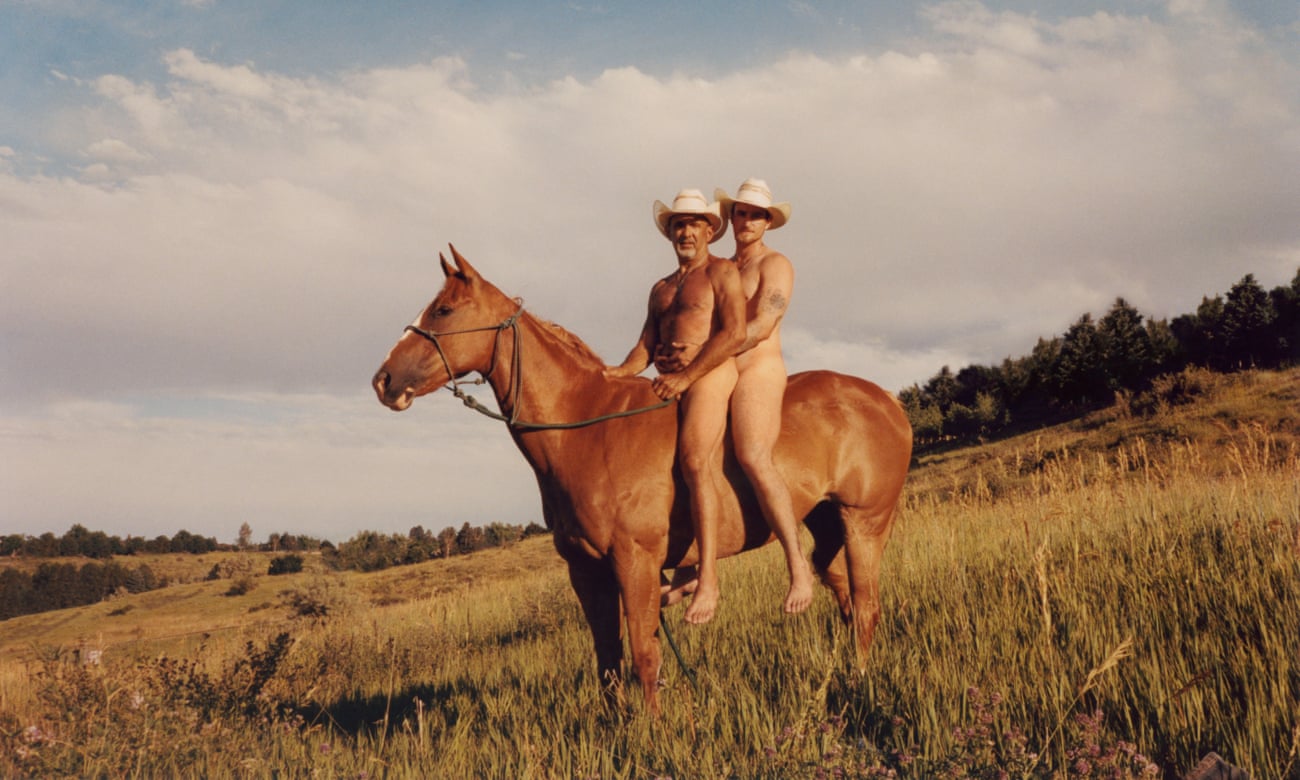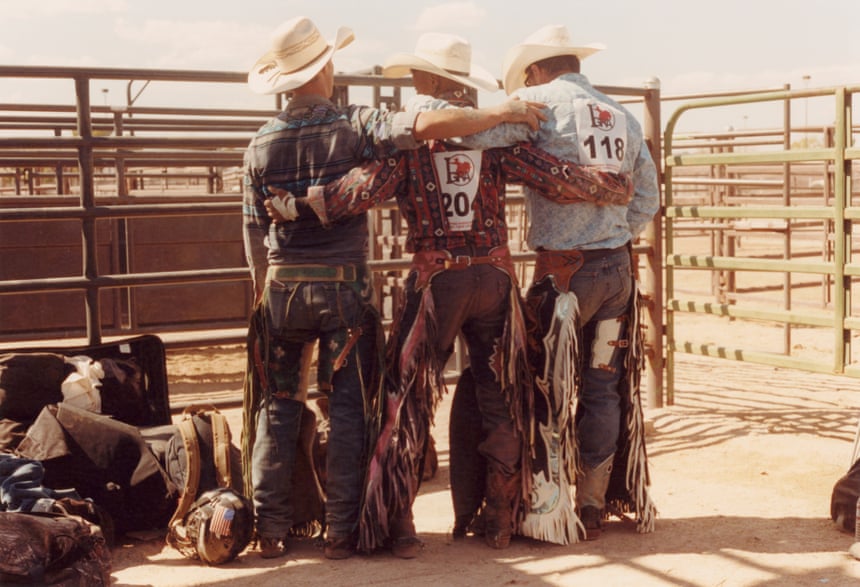Luke Gilford was at a Pride event in northern California in 2016 when he was drawn to a stand by the sound of Dolly Parton singing 9 to 5.
What he found there would change his life. Members of the local chapter of the Golden State Gay Rodeo Association were promoting what they do, and how they live. Gilford looked on in astonishment. “I grew up around this world,” he says. “I had no idea this existed. I really didn’t think it was real.”
A sought-after film-maker and photographer, to whom Barbara Kruger is a mentor and Pamela Anderson and Jane Fonda muses, Gilford cuts a striking figure. A New York Times profile that same year recounted how you could often catch a glimpse of him downtown, in a hand-me-down cowboy hat, football-style shoulder pads over his bare torso.
The headwear belonged to his father, a rodeo champion and subsequent judge in the Professional Rodeo Cowboys Association. Gilford was born in Colorado, and grew up watching his dad ride in snakeskin boots, a giant silver buckle gleaming at his waist. He gradually realised that he didn’t fit into this world, though. “The mainstream rodeo world is, you know, obviously, very homophobic and conservative. There’s so much machismo. It’s racist.”
So this chance encounter with a bunch of people who’d managed to do what seemed impossible to him was as exciting as it was discombobulating. “We all know what a rodeo is,” he says, “and we all know what queer is. We don’t think of them going together.” He set about exploring how they might.
The result is National Anthem, Gilford’s first photographic monograph – and, to his mind, a timely musing on the state of America. “We’re taught in school to recite the national anthem every morning. It has this aura of promise. But as we grow older, we realise this promise is kind of a myth. What I think is really beautiful, and so inspiring, about the queer rodeo community is that it brings back that aura of promise. It embraces both ends of the American cultural spectrum: people living on the land, but who are also queer.
“To begin with, it was very personal, a way to reconnect with a side of myself I had suppressed. But I started the project around the time Trump was elected. So it has felt really urgent to work on a wider scale beyond that personal level, to focus on what we all should be talking about and working towards.”
Continues here...
ETA;
Just for Scooter...


